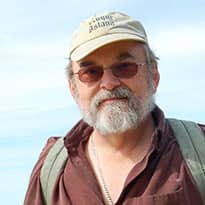Pagans may or may not grant there is a transcendent dimension to Spirit. (I do.) But I think we all emphasize Spirit's immanent dimension. The sacred is in the earth, the sky, it is in everything (although sometimes very well hidden).
At least two facts come from this. First, everything in the world has a spiritual dimension if approached appropriately. Second, the ways to honor and engage with Spirit are therefore innumerable. These facts push us to employ mythos in a contemporary context, and to acknowledge that there are many ways to honor the sacred. Many of us have the Wheel of the Year in our celebratory cycle whereas African diasporic traditions do not. But it makes no sense to any Pagan I have ever encountered to say one is right and the other wrong. They are simply different ways of accessing and honoring Spirit as it exists in and through the world.
When we have them, our texts are mythic, as with the story of the Holly King and the Oak King. Often times one set of myths used within a tradition will differ from another set of myths also used in that tradition. If the God dies with the waning of the year, how can there be a Holly King co-equal with the Oak King? But these 'contradictions' are not signs of sloppiness, they are two different ways for us to grasp meanings that are beyond the ability of words alone to express. Both are fingers pointing towards the moon.
Our approach to the Sacred has little need for a sacred text giving a linear literal account of spiritual reality. When read as a narrative, a text cannot help but distort a spiritual experience because the text is linear and in vital respects the experience is not. Linear understanding guarantees missing their meaning, but texts encourage it for the superficial reader.
A scientist who considers himself an atheist, Geerat Vermeij, has been blind since childhood. Consequently he became extraordinarily tuned to other senses, such as sound. In his excellent The Evolutionary World, Vermeij wrote about a Panamanian rain forest in a way that demonstrates why a linear text can never bring us to the Sacred since it cannot even adequately describe the beauty of the world considered in a secular way.
Reading about a place is necessarily a sequential act, filtered through someone else's sensibilities. On one page one might read about trees; on another there is a vivid description of the termites or the frogs or the birds. Being in the forest, one experiences everything at once, and one notices things that others overlooked or considered too trivial to mention. Shapes, sounds, smells, and weather come together to offer the prepared mind an emergent conception of the whole. . . .
I am listening to an unrehearsed orchestra of many different instruments playing symphonies and concerti that are at once musically complex and pleasingly transparent. If only the twelve-tone composers of the twentieth century could have produced such lush textures.
When the world in all its wondrous variety and beauty and paradox is our 'text' fundamentalism seems to me about the most incoherent approach to spiritual understanding of which I can imagine. It never gets to first base and tarts up human pride with the trappings of the divine. That is why I call it a spiritual malady to which text based religions and particularly monotheistic text based religions are particularly prone to suffer.
I do not mean to say there can never be a Pagan fundamentalist. Fools exist in every spiritual community. But Pagan spirituality is particularly resistant to fundamentalism, and I believe this is one of its great virtues.





